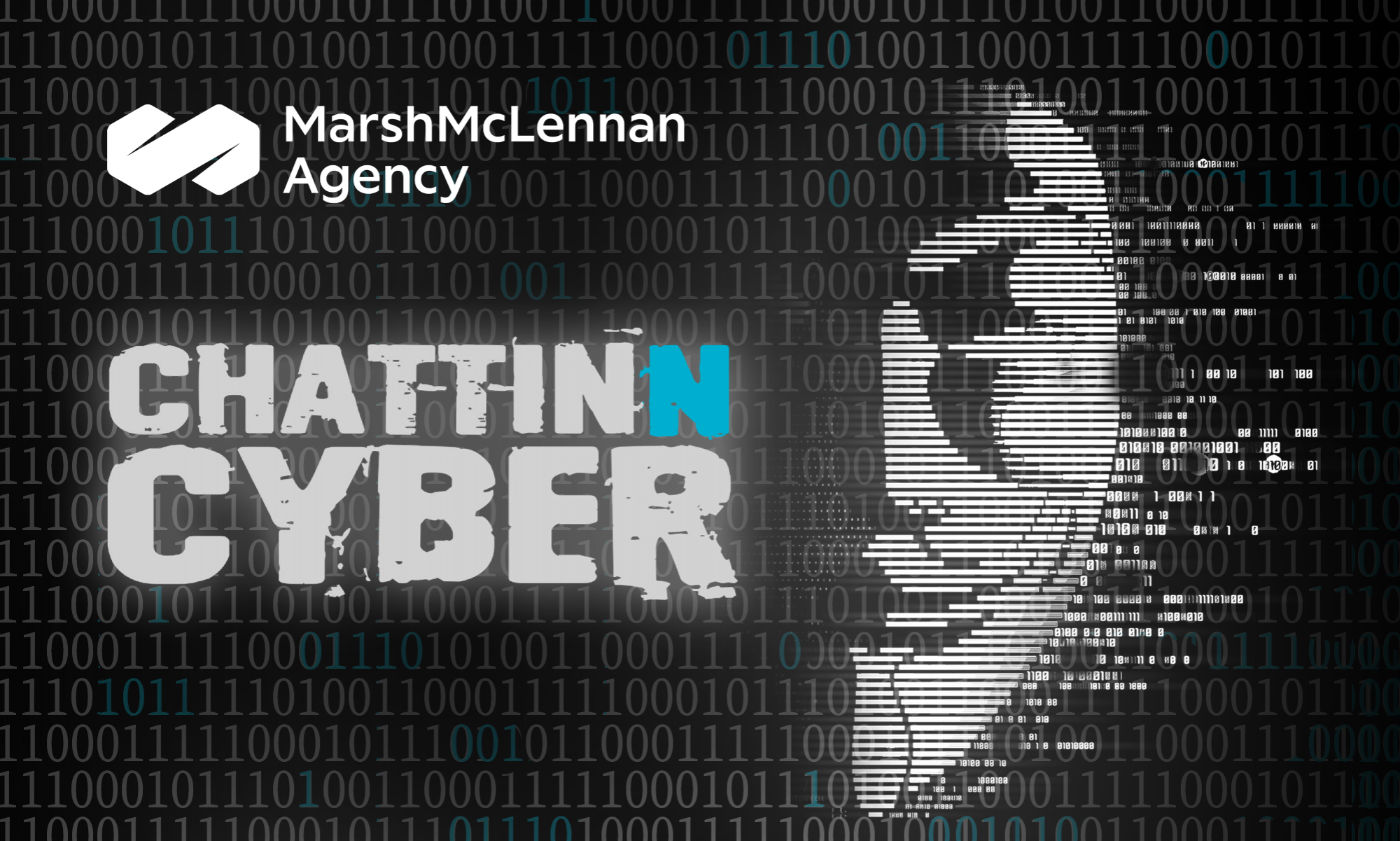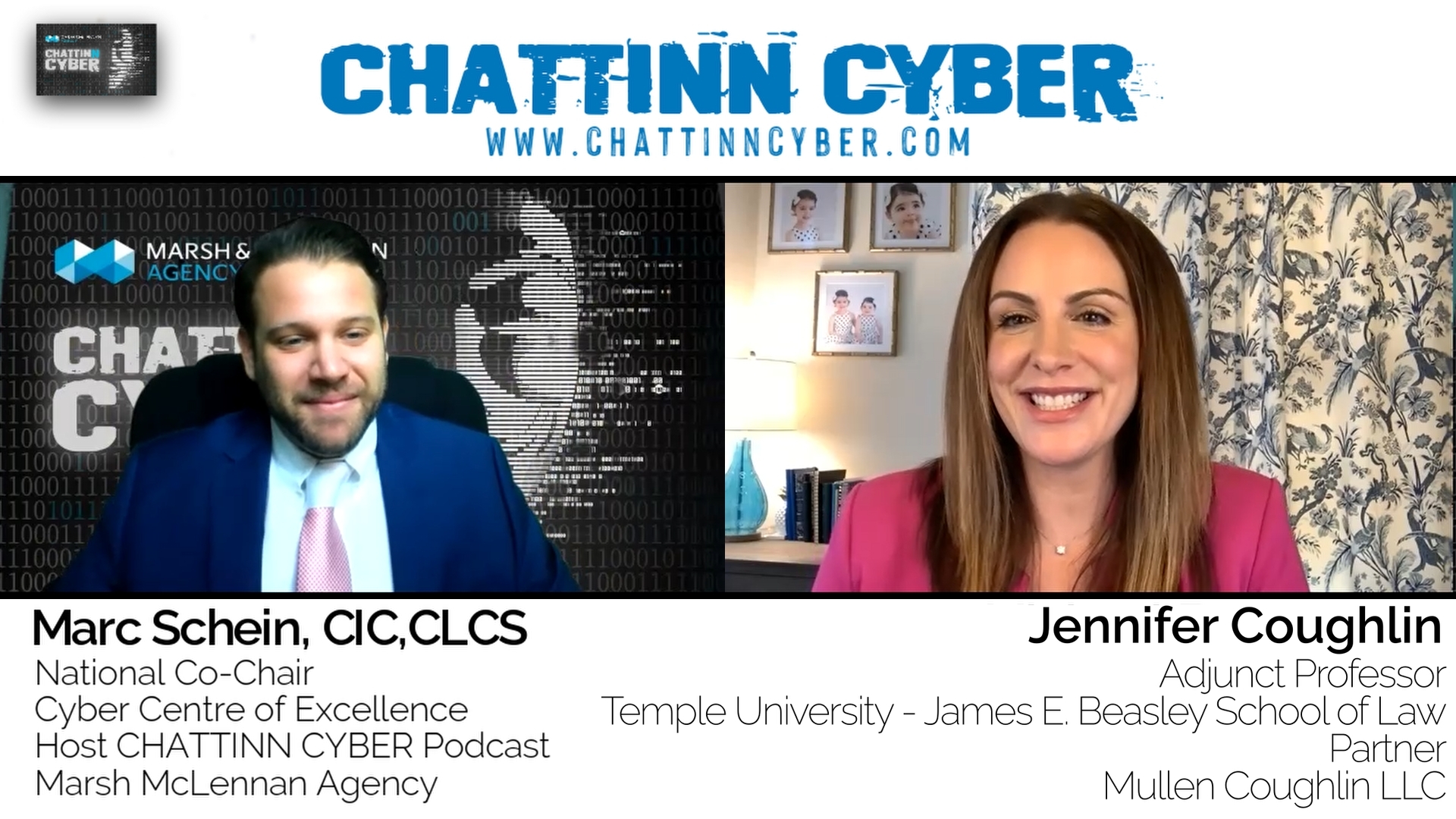Podcast: Play in new window | Download (Duration: 18:35 — 25.5MB)
Subscribe: RSS
In this episode of CHATTINN CYBER, Marc Schein interviews Maria T. Vullo, Founder, and CEO of Vullo Advisory Services, PLLC, a strategic advisory firm. She serves on several for-profit boards, is Regulator-in-Residence at the Fintech Innovation Lab, and an Adjunct Professor at Fordham Law School. She was formerly the New York’s Superintendent of Financial Services, responsible for managing a 1,400 person regulatory agency that supervises New York’s banking and insurance industries. Maria has extensive banking and insurance regulation expertise, BSA/AML compliance, an understanding of cybersecurity and data privacy, fintech and insurance, and strategic litigation.
In today’s episode, Maria discusses her insightful career in DFS, working in private law and consulting practice later. She shares her experience working with private and public sector institutions and how both have added to her expertise in the law.
Maria talks about finalizing the DFS Proposed Regulations Part 500 (Cybersecurity Requirements for Financial Services Companies) in 2017 and its significance. Not only was it a big deal in cyber, but it was the first in the nation at that time and is still a leading force in cybersecurity regulations. Maria adds that DFS has a huge responsibility in helping manage cybersecurity risks. It is responsible for the safety and soundness of all the banks and insurance companies that are state-chartered. Since any cyber risk could also create a potential financial risk to them, the DFS had to take steps to consider cybersecurity seriously.
The government plays a huge role in combating cyber risk or ransomware. After the ‘SolarWinds hack’, the largest global cybersecurity attack that happened recently, the federal agencies and governments passed a pervasive executive order asking all private and public agencies to bring a unified approach to handling cybersecurity issues.
The New York State Department of Financial Services (NY DFS) recently issued new Ransomware Guidancefor regulated companies to prevent successful ransomware attacks. This happened post realizing that 74 of their regulated institutions had suffered ransomware attacks, 17 of which needed to be paid the ransom.
We also discuss the world of FinTech pre and post COVID and why insurance suffered in these times. Maria explains that in financial services, consumer protection will be a big issue for the Biden administration. Virtual currency is another central area of regulation considering its global reach.
Maria closes the conversation by stating the massive role of cybersecurity protection in enabling cyber insurance. It will continue to grow in importance in the coming years!
Quotes:
“If you have a significant cyber cybersecurity attack, that’s a financial attack and you have a ransomware attack that stops your business, has a huge impact, if not a closing impact on your bottom line.”
“DFS as a regulator is very, very concerned with the financial soundness of banks, insurance companies, because there’s all these people out there that rely on financial services for their banking for their insurance policies.”
“The more that you follow the regulation, the more that you have security and everything else, the less likely it will be that you will suffer one, or if you do, there’ll be mitigation measures that won’t have as serious an impact.”
“Cyber insurance is such a critical issue for all companies. And I think that it goes hand in hand with cybersecurity protection.”
“The stronger your cybersecurity protections, the better able you are to get a good cyber insurance policy.”
“The last thing that I want to see as a former insurance regulator is for insurance companies to not be in the space or for the pricing to be such that people can buy cyber insurance.”
Time-Stamps:
[00:57] – Maria’s experience working with both private and public sectors and how both of them helped her build a strong career in law.
[02:52] – About the DFS Proposed Regulations: Part 500 – Cybersecurity Requirements for Financial Services Companies
[05:17] – New Ransomware Guidance for regulated companies on preventing successful ransomware attacks by the DFS
[07:43] – The role of government in combating cyber risks
[10:32] – Fintech today
[13:00] – The regulations around virtual currency today
[15:58] – Maria’s parting advice for the listeners
Connect with Maria:
LinkedIn https://www.linkedin.com/in/maria-t-vullo-b40a7258/


